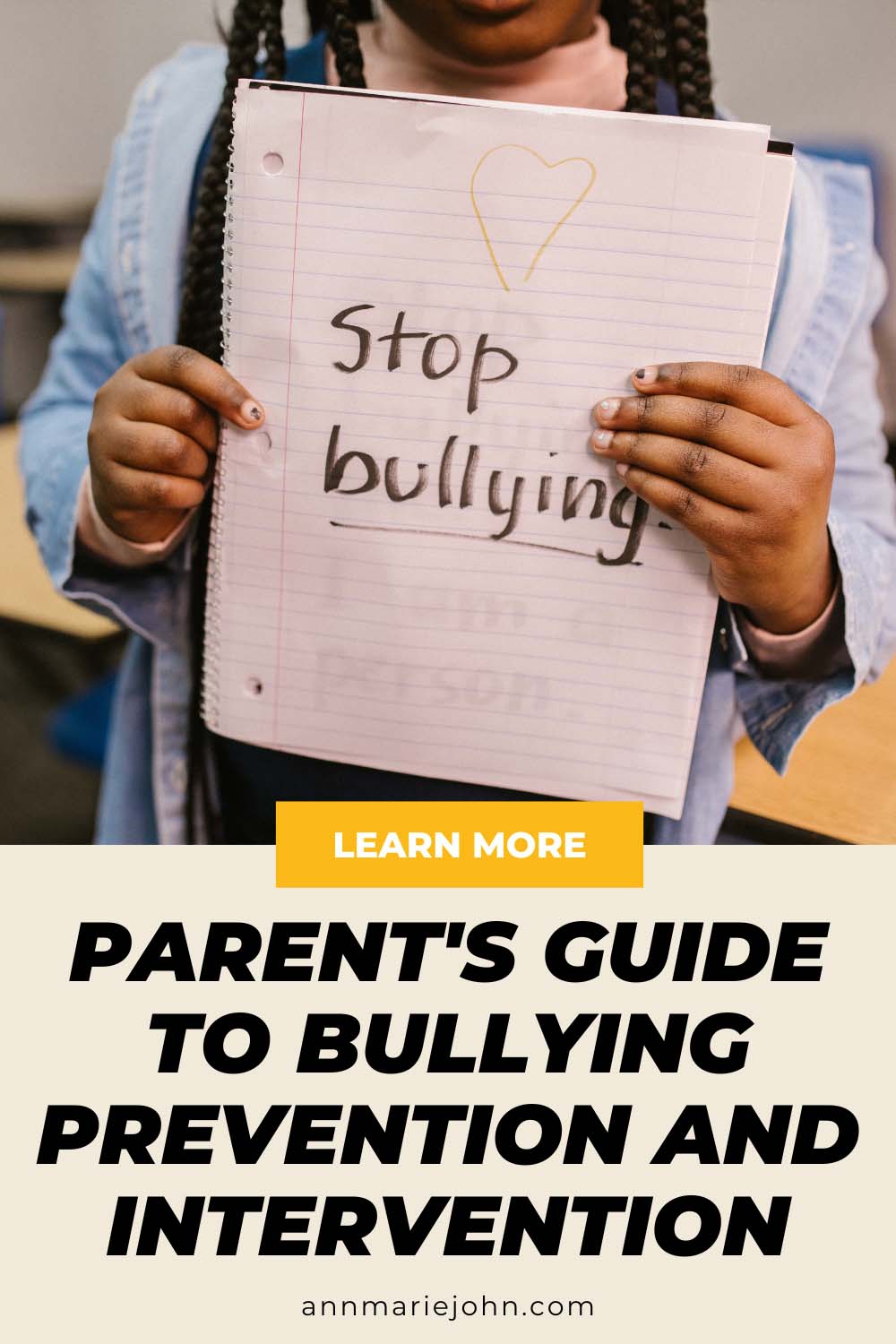Discover the role parents play in bullying prevention and intervention as well as ways to support your child if they’ve experienced or witnessed bullying behavior.

In recent years, there has been growing awareness about the detrimental effects of bullying behavior on children and adolescents. Schools across the globe have implemented various bullying policies in an attempt to create a safe and supportive school environment. However, these policies’ effectiveness heavily relies on parents’ involvement. Research has consistently shown that parental engagement in bullying prevention and intervention plays a vital role in combating and mitigating the harmful effects of such behavior.
Parents are uniquely positioned to identify signs of bullying, as they are often the first to notice changes in their child’s behavior or school performance. They can notice and report bullying incidents to the school authorities. Moreover, parents can also provide support to their children by offering counseling or seeking the help of a psychologist, if required. With intervention strategies and practices recommended by experts, parents can actively intervene and address the issue of bullying effectively.
This article explores parents’ crucial role in empowering bullying prevention and intervention. It discusses the importance of parental involvement, the effectiveness of different intervention strategies, and ways parents can actively contribute towards creating a safer and more inclusive school environment.

Cracking the Code of Bullying: A Puzzle Worth Solving
Bullying is an age-old issue plaguing our schools, leaving countless victims struggling to find their voice amidst the chaos. No matter how many bully policies in public schools are implemented, it remains a problem.
With the ultimate goal of creating safe and nurturing educational environments, educators and administrators have been tirelessly working to prevent bullying and foster a positive school climate. They have implemented various best practices and prevention efforts, recognizing that a comprehensive approach is essential for tackling this pervasive issue.
One crucial aspect of these prevention efforts lies in understanding the dynamics of harassment and exploring ways to address it. Schools now go beyond solely punishing the perpetrator and instead focus on educating students about empathy, respect, and kindness through specially designed curricula. This proactive approach empowers students to become active bystanders and intervene when they witness bullying. It creates a more inclusive atmosphere within the school walls.
Moreover, as part of these prevention strategies, we must not overlook the importance of conducting special education investigations when necessary. By identifying potential risk factors and supporting individuals who are disabled, we aim to proactively intervene and prevent bullying from taking root.
The Power of Parents: Shaping How Kids See the World
Parents influence their children incredibly; they are the first and most important guides in their young lives. Parents’ actions, beliefs, and communication all play an integral role in shaping children’s perceptions of themselves and the broader world.
Here are some ways parents can help with bullying prevention or intervention:
Engage in Conversations:
Establishing an environment where dialogue flows freely holds immense significance. Encouraging children to share their narratives and apprehensions without fear of judgment can be transformative in addressing potential bullying situations. Regular discussions about day-to-day occurrences can provide insights into their social circles, enabling parents to identify early signs of bullying.
Exemplify Empathy:
Parents function as living examples for their offspring. When parents exhibit empathy, kindness, and respect in their interactions, they deliver a firsthand lesson in interacting with others. These lessons learned within the home environment resonate through their children’s interactions with their peers.
Mastery of Online Etiquette:
In today’s digitally driven world, the prevalence of cyberbullying is a legitimate concern. Parents can educate their children about responsible online conduct, respecting others’ digital boundaries, and speaking out against online bullying when encountered.
As parents, we serve as catalysts for change. By establishing the framework by which children navigate the world’s complexities, we can help stop bullying. Let us empower our children to take a stand against it, both within the confines of their educational institutions and in the broader spectrum of life.
Working Hand-in-Hand Against Bullying Behavior: Intervention and Support
Taking action is crucial when it comes to addressing the issue of bullying in schools. Aside from parents, school administrators play a vital role in creating a supportive and safe environment for their students. Implementation of an evidence-based anti-bullying policy can enforce a zero-tolerance policy towards bullying. It showcases their commitment to the well-being of their students.
With careful consideration and planning, school administrators can ensure that these prevention programs effectively reduce instances of bullying and provide necessary support to those affected. Understanding that combating bullying requires more than just reactive measures is essential. Schools can help students develop empathy and compassion by proactively creating a culture of inclusivity and kindness.
The Road Ahead: Fostering a Safe Environment
As society continues to recognize the grave consequences of bullying, parents remain at the forefront of the battle against this pervasive issue. By embracing their pivotal role and actively engaging in prevention and intervention efforts, parents can create a safer and more inclusive world for their children.
As parents, we can shape the future by building awareness and skills for guiding our children. Even with co-parenting setups, observing parenting time schedule allows for quality time, and effective communication with our kids is crucial. This proactive approach to addressing bullying in our communities will help foster a healthy environment for them.
By working hand in hand with the principal, school district, and counselors, we can ensure that our children thrive in a safe and inclusive environment. It is essential to approach these discussions respectfully, acknowledging the perspectives of others, and promoting positive collaboration. Prevention and intervention strategies should be implemented to tackle bullying effectively. We must also strive to be culturally responsive, recognizing and valuing the diversity within our community. Let’s join forces to raise confident, compassionate children who will make a difference. We can create a brighter future for our children and the next generation.
